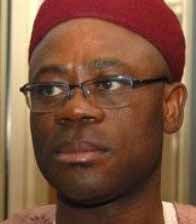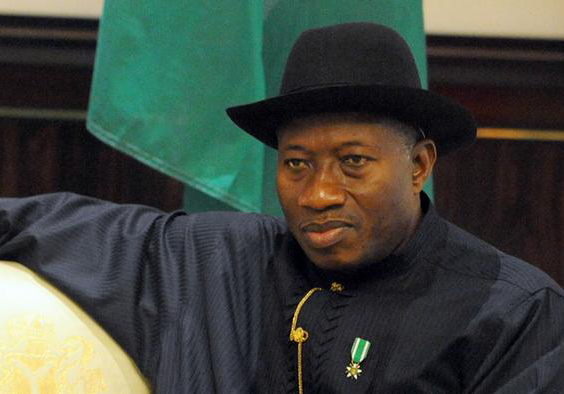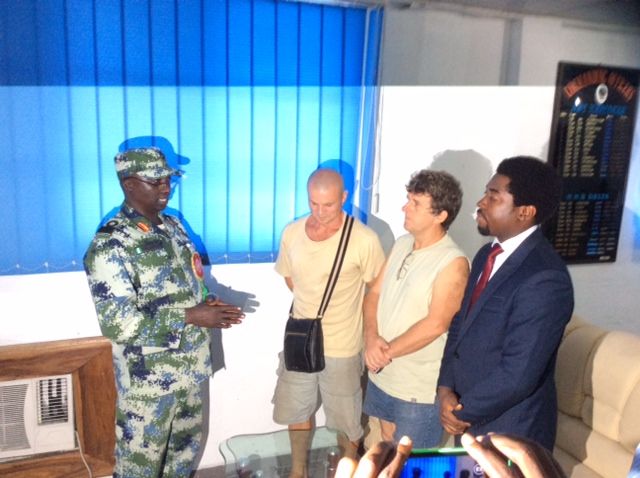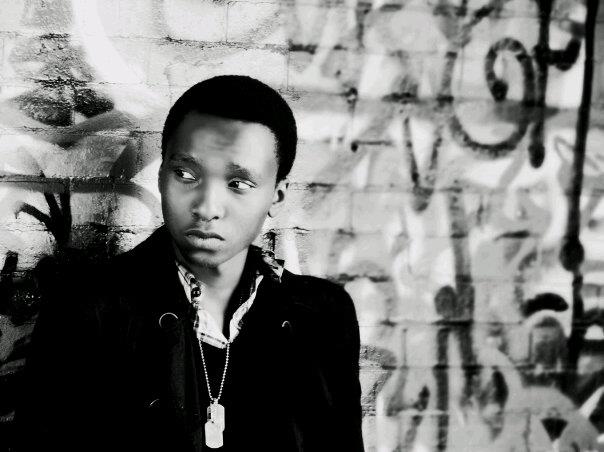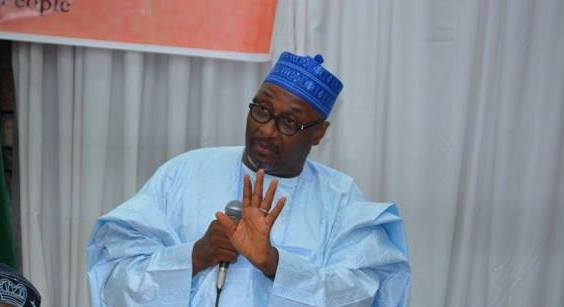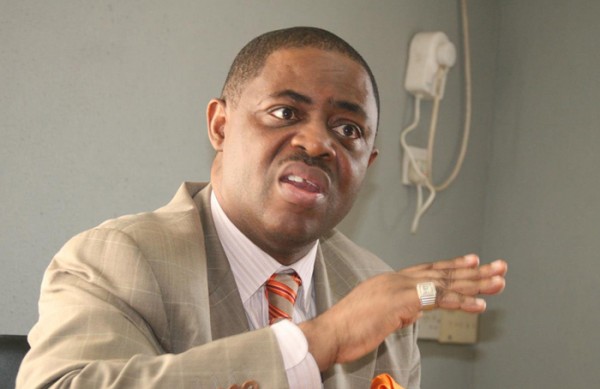One of the questions usually thrown at fresh students of International Security at the inaugural seminar is, what is security? In the olden days, i. e before the end of the Cold War, the answer should be very easy: police, armed forces, secret service and the ministry of interior. Now, the answer is a much more complicated one. First of all, you must start by interrogating the concept of security itself by asking, which security? Whose security, which threat and how?
These questions are supposed to guide you to arrive or see the point that the conception of security as that of the state has or should give way to security of the people because the generic state has itself become a security threat to the people in so many respects and across the world. So, what the students end up studying as security is, in many universities, Security-as-Emancipation or security as the freedom of the people from conditions which keeps them down. So, there has been a substantial and even fundamental shift from traditional to what are now collectively conceptualised as ‘New Security Challenges’ – pandemics, poverty, climate change and environmental crisis, migration, transnational violence, arms trade, cultural & identity fragmentation and so on. The most current operationalisation of ‘New Security Challenges’ is the declaration of Ebola as a threat to International Security by the UN. I stand to be corrected but it is an unimaginable language of the UN during the Cold War.
Within the context of such powerful currents as emancipation and cosmopolitanism, particularly as they relate to human suffering from what followed the end of the Cold War in the Balkans, in Rwanda and in West Africa and as aggravated by the US invasion of Iraq in 2003 without UN endorsement, this security about turn is not only at the UN. It is everywhere and we see it in the massive peace movement actions, the protests against war and against military and secret service atrocities. Books have been written, films have been produced, poems composed and even street actions staged across the world to protest security forces mistreatment of human being in the name of security. Some heady scholars in the critical security studies promoting the security-as-emancipation paradigm have even gone as far as nominating international NGOs as candidate replacement for the state in a re-arrangement of world security so that security becomes a matter of dialogue, a polycentric affair rather than a monologue. There is a seductive argument here: if the defunct USSR could collapse without any shots fired from outside or if the United States could be struck by insurgents using US own aircrafts, then what is this security we are talking about? The clincher in all these is where it is also argued that the anarchy from which states are supposed to be securing themselves is just a construction and it can be reconstructed. If the UN could securitize HIV/AID or declare Ebola a threat to international security, then the idea of Security-as-emancipation has gone beyond university seminar rooms to the village square.
No aspect of the above resume, I am sure, would be totally strange to the average officer in the Nigerian armed forces, secret service and perhaps the police. It is understood that the years of democracy have meant a lot of opportunities for hard core academic exposure for officers of the Nigerian military and even the SSS and their other partners. That’s good to hear because, ideally, the Nigerian military should be the most sophisticated military on the continent in terms of leading the institutional and professional re-orientation in favour of Security-as-emancipation. Why should this be so? In the days when security meant boots on the ground somewhere, inside or outside Africa, the Nigerian military paid its due by the number of peace keeping operations its troops have been sent to. There is no reason why it should not also be the leader in the management of ‘New Security Challenges’, bringing relief to victims of Ebola or massive climate change/environmental disasters at the drop of the pin. Such would be an even better projection of Nigerianity in the years ahead. Its uninspiring encounter with domestic insurgency is, therefore, a BIG cause for worry because it is a sign that it has been substantially caught completely flat footed. It is not its internal problem but that of the political leadership over the years. After all, it is so many years back when service chiefs talked of the army having become one where anything goes, where the Nigerian air force was described in a newspaper interview by its service chief as the only air force in the world without wings. It is hoped that when Nigeria itself ever gets an opportunity to be repackaged, the armed forces would be a major site of revalidation on the most advanced institutional, ideological and geopolitical doctrines available.
Advertisement
What is, however, becoming an institutional problem is the corporate response to what the armed forces might consider irritating. Such as either getting into quarrelling with online publisher or getting entangled with vendors and distributors and responding spicily to every human right indictment associated with its handling of Boko Haram. In the aftermath of its humiliating encounter with Boko Haram, this sort of pursuing the stubborn hen when the deadly hawk has not relented can suggest that nobody is taking notes or learning lessons from the humiliation of the armed forces and Nigeria, by implication.
Even at the best of times, there is an observable consciousness among Nigerians across the spectrum that, with the military, Nigeria is guaranteed. This is demonstrated by the way they run headlong into the Barracks at the slightest sign of ethno-religious discord. This was the greatest evidence that it was truly only in the military that religion and ethnicity didn’t count. By now, the military must have sent someone, military or civilian, to problematise and write a PhD thesis on this moving communion between citizens and a country’s military. Where does it come from? It should be important to know.
Today, it is unclear if this is still the reality. That is whether the people still have an unexamined faith in the military institution as the ultimate guarantors of the national interest. This is a big achievement in history and should the faith of the citizens in the armed forces be observed to be changing, it should worry the big guys there. Image is everything in all these. In the year of a presidential contest that keeps looking like a slow motion to a deadly crash, the armed forces needs to leave no signs that it is still the ultimate and most reliable guarantor of nationhood and that those of us who will take to our heels at the sight of guns can be rest assured.
Advertisement
Much of what I have said about the armed forces above applies to the Department of State Security, (DSS). My very limited experience about the DSS from the Media – Security cooperation dynamics within the context of a Government House image management manual suggests to me that without the DSS, no one will be able to sleep in Nigeria. In other words, its officers work for Nigeria. Whether what they do and how they do it will pass the scrutiny of security-as-emancipation is a different thing. Also, whether the fate that befell the armed forces in the hands of Boko Haram is also the fate of the DSS is unknown to me. What is, however, not in doubt is the way the DSS is getting into too many street wise arguments today, particularly straying into passing value judgments on issues to which it quickly presents itself as a party. I am not sure it requires professional training to argue that the DSS cannot be a party to any quarrel in Nigeria. Theoretically, its job is the continuous reconciliation of Nigerians. It has no interest but Nigeria. But what is Nigeria?
Certainly, what is Nigeria is not what the SSS says it is. It is not in the political position to decide that. Technically, it can argue that its duties are clearly set out. But there is no line of argument it will take without someone producing a counter-argument even on this. In the end, its best strategy is to operate at a level where it cannot be contested. Because when an institution like the DSS begins to be contested, it is Nigeria that is going down. Again, in a year in which a presidential contest is stretching reasonableness to its limits, maintaining a level beyond reproach becomes a make or break investment for the DSS.
Someone might chuckle and say, easier said than done. What do I want the SSS to do if the powers that be finds in the SSS the easy way out of their own quagmire. That is not true. There is no institution like the SSS that doesn’t have mechanisms and/or conventions of giving to the powers that be what belongs to the powers that be and giving to Nigeria what belongs to Nigeria, more so in the context of the impending elections. For the armed forces and the DSS, if this must be said, the task is not assisting any particular aspirant to win this election, no matter how s/he might appeal to them, individually and collectively. The task is the preservation of Nigeria, a task that can challenge any professionalism, given the complexity of the balance of forces and what is, therefore, at stake about political power in Nigeria today. But if smaller countries have put behind successfully holding credible elections, why should the supposed giant of Africa always be looking for excuses and exits from confronting such challenges? It should be by the professionalism of institutions like the DSS and the armed forces that we can put behind the culture of permanently postponing coming to terms with doing things by which can add value to ourselves and to global progress.
Unlike in the United States, for example, where the historical suspicion of its external intelligence agency, the CIA, leads to regular, messy probes by the Congress such as has recently been done or where journalists, academics and film makers have made a career of disrobing the CIA, the DSS in Nigeria has not been fought institutionally, either by any other institutions of government or by journalists, academics or popular groups committed to any new conceptions or ideology of security. That is its luck and it should be congratulated for achieving such mystique. But it runs the risk of self demystification if it forms the habit of getting into ‘wars of position’ by cleverly reconstructing and representing what some people say but not what some others say. Because, then it might start attracting needless turf wars. But, as in the case of the armed forces, it is set up to be big minded enough and proficient in demobilising real threats without getting into needless quarrels. In all cases, let the DSS itself not become the problem. In all cases, let it be in the forefront of putting out fires, not a plausible source of spark itself.
Advertisement
The meaning of security will never be the same again. What happened in 1991 has changed it forever. But Nigeria will not be the first to start dismantling traditional security apparatuses. It will start doing so after others would have done so. Until then, these traditional apparatuses will continue to be symbols of nationhood, attractive to citizens and patriots even more than the people who work there as a place to earn their living. But even then, they must also be manifesting a more self-aware conception of the domain of security. Because security is a word that can be understood by anybody anyhow, it is vulnerable to manipulation. Africa has suffered from this manipulation more than any part of the world. This is in the sense that while people in Asia, Latin America and the Middle East suffered in the hands of security, they got state performance. In the case of Africa, what did we get? Nothing! Anybody who wants evidence for this claim must then look for and read Professor Okwudiba Nnoli’s book titled National Security in Africa: A Radical Perspective. Please, let us, in 2015, begin to hear impeccable and elevated positions that are inherently re-assuring from the DSS, the Nigeria Police and the armed forces of the Federal Republic of Nigeria.
ONOJA wrote in from University College London, UK
Add a comment
